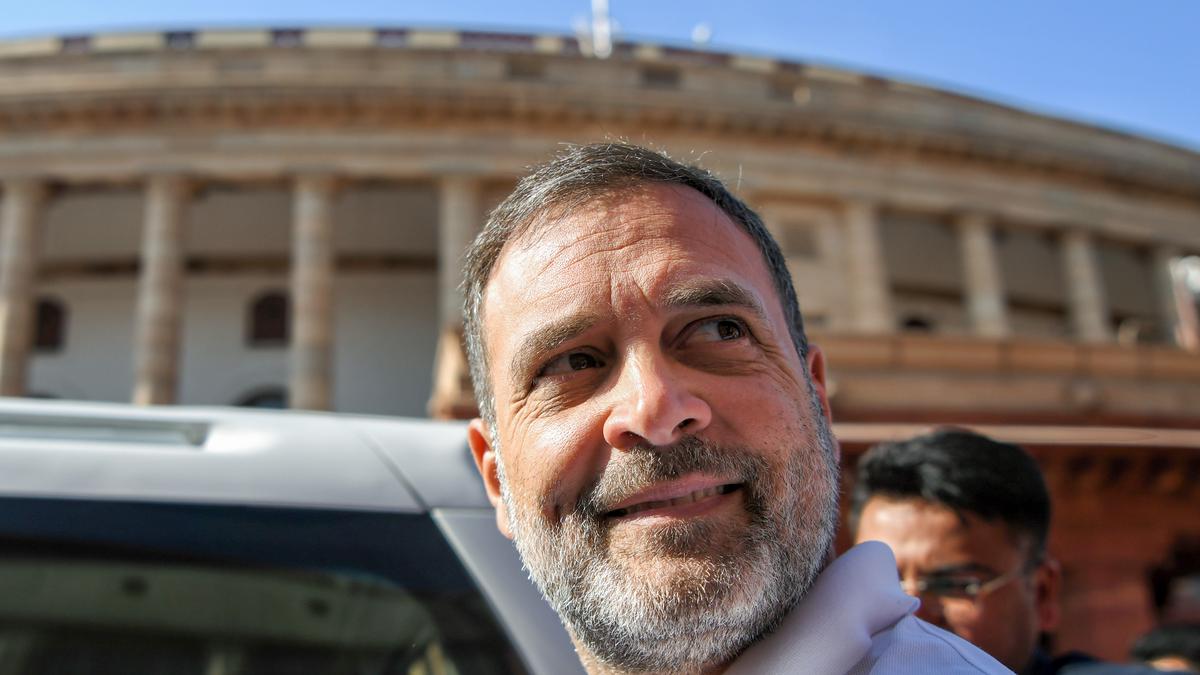 |
|
The Indian political landscape witnessed a significant event on December 11, 2024, as Leader of the Opposition in Lok Sabha, Rahul Gandhi, met with Speaker Om Birla. The primary purpose of this meeting was to address the escalating tensions within Parliament, primarily stemming from what Gandhi characterized as derogatory and baseless allegations levied against him by BJP MPs. Gandhi's central request was the expunging of these comments from the official parliamentary record. He emphasized that the BJP's actions were a calculated attempt to deflect attention from the ongoing controversy surrounding the Adani Group, a powerful conglomerate whose business dealings have faced intense scrutiny. The strategic use of accusations against him, Gandhi contended, served as a smokescreen to prevent meaningful debate on the Adani issue, a matter of considerable public interest and political sensitivity.
Gandhi's approach, however, was not solely focused on addressing personal grievances. He explicitly stated his commitment to ensuring the smooth functioning of the House, emphasizing the importance of parliamentary debate and discussion. He reiterated his desire for a substantive debate on December 13th, indicating a clear preference for resolving the conflict through parliamentary processes rather than escalating it further. This pragmatic approach highlights Gandhi's commitment to the institution of Parliament, even amidst the contentious political climate. His willingness to participate constructively in the legislative process, despite facing repeated attacks, demonstrates a strategic decision to prioritize the functioning of the government over immediate retribution.
The Congress party, in alignment with Gandhi's strategy, formally submitted a complaint to the Speaker, further pressing for the removal of what they considered defamatory remarks made by BJP MP Nishikant Dubey. Deputy Leader of the Congress in Lok Sabha, Gaurav Gogoi, underscored the party's commitment to participating in the parliamentary proceedings, contingent upon a positive response from the Speaker regarding the complaint. This conditional participation underlines the party's resolve to combat what it perceives as unfair and obstructive tactics, while simultaneously expressing a willingness to engage in the legislative process if the playing field is leveled. The strategic linkage of cooperation with the redressal of grievances highlights the delicate balancing act facing the Congress party amidst the ongoing political tensions.
Gandhi's engagement extended beyond his meeting with the Speaker. He also engaged with other key figures, further emphasizing his commitment to both addressing grievances and ensuring the smooth running of Parliament. His meeting with Defence Minister Rajnath Singh, though marked by a brief exchange, showcased an attempt to engage across party lines. The symbolic gesture of presenting the national flag, while ultimately unsuccessful, demonstrated a willingness to foster unity amidst political differences. These interactions, while not yielding immediate results, underscore the multi-pronged approach adopted by Gandhi and the Congress party to manage the current situation.
The accusations leveled against Gandhi, involving alleged links between the Congress leadership and U.S. billionaire George Soros, were dismissed by Gandhi with a characteristically calm demeanor. He acknowledged the continued barrage of allegations but reiterated his commitment to ensuring the functionality of the House. His response reflected a calculated strategy to counter the BJP’s actions by focusing on the greater good of the parliamentary process, thereby attempting to deflect attention from the specific accusations while maintaining a consistent and principled position. This strategy positions him as a responsible political leader who prioritizes the national interest despite facing personal attacks.
The events unfolding in the Indian Parliament reflect a deeper political struggle encompassing not just personal attacks but also broader policy debates. The Adani issue, at the heart of the conflict, represents a significant challenge to the ruling BJP, raising questions of corporate governance, transparency, and the use of political power. The Congress party’s strategy of using this situation to expose potential irregularities while maintaining a commitment to parliamentary function underscores the complex political maneuvering at play. The overall situation reveals a power struggle between the ruling party and the opposition, reflecting a larger political narrative playing out on the national stage.
Source: Rahul meets Speaker with request to expunge remarks against him, ensure House functions
